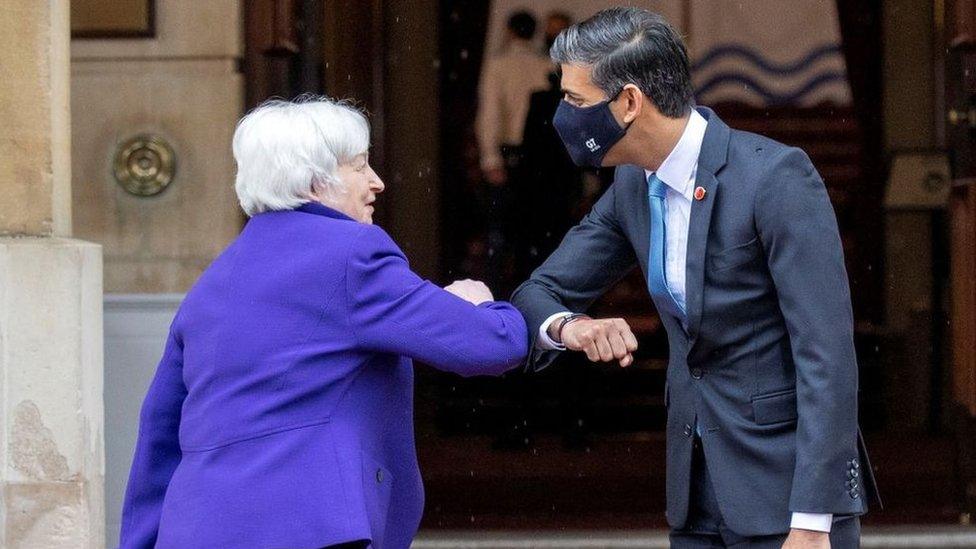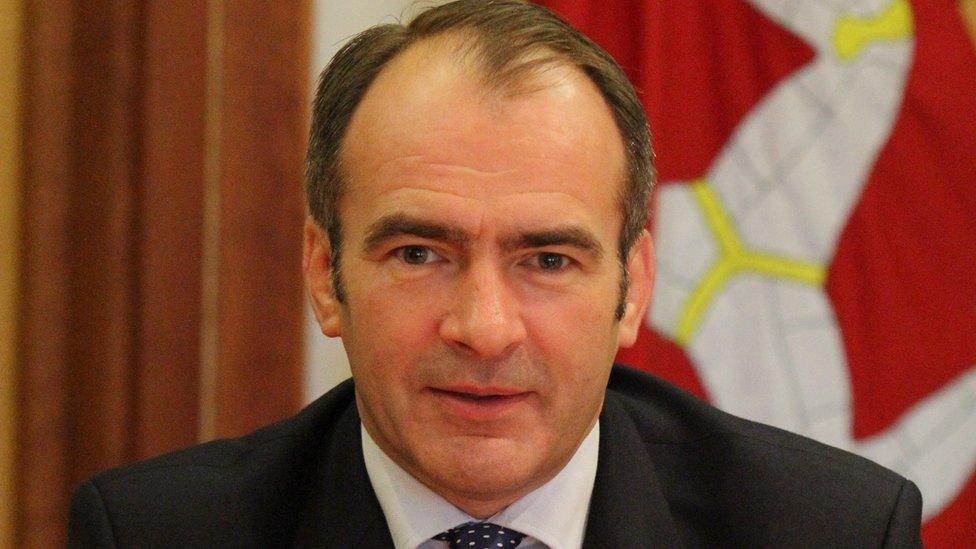Isle of Man 'well-placed' to adapt to G20 global tax reforms
- Published

Howard Quayle said firms that were part of multinational groups would be affected
Reforms of international taxation rules would "directly affect only a small number of businesses" on the Isle of Man, the chief minister has said.
The historic deal, which was agreed by most of the world's nations at Friday's G20 summit, would see multinational companies pay a fairer share of tax.
It would enforce a corporate tax rate of at least 15% on big firms in the countries where they do business.
Howard Quayle said the island was "well-placed" to adapt.
The deal, which would oblige large firms to pay tax in the countries where profits are generated rather than in a low tax jurisdiction where they are headquartered, would combat potential tax avoidance.
The implementation of the deal would see a shift in the island's current tax regime.
'Respond and adapt'
Under the rules in place a present, only large retailers and banking businesses are taxed 10%, while land and property income is taxed at 20%.
The new minimum rate would come into force in 2023.
Mr Quayle said the island had experience in working with local businesses and other jurisdictions to "respond and adapt rapidly to changes in global standards".
It would now be for the next administration "to consider how best to position" the island in light of the reforms, he added.
Treasury Minister Alfred Cannan said the government would "work constructively with both local businesses and the international community" and the technical details of the deal would "feed in to the island's future economic strategy".
A review of the Manx taxation system is already under way as part of the development of a new long term strategy.

Why not follow BBC Isle of Man on Facebook, external and Twitter, external? You can also send story ideas to IsleofMan@bbc.co.uk, external
Related topics
- Published8 October 2021

- Published7 June 2021
